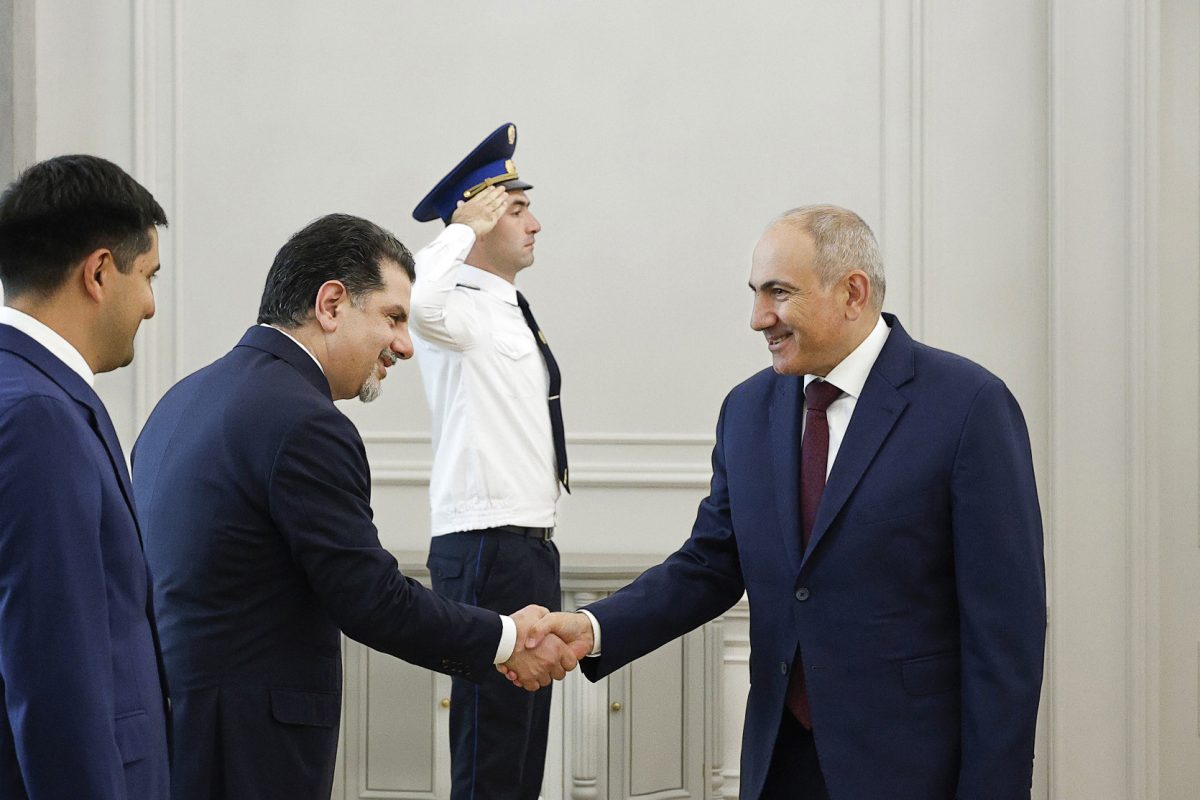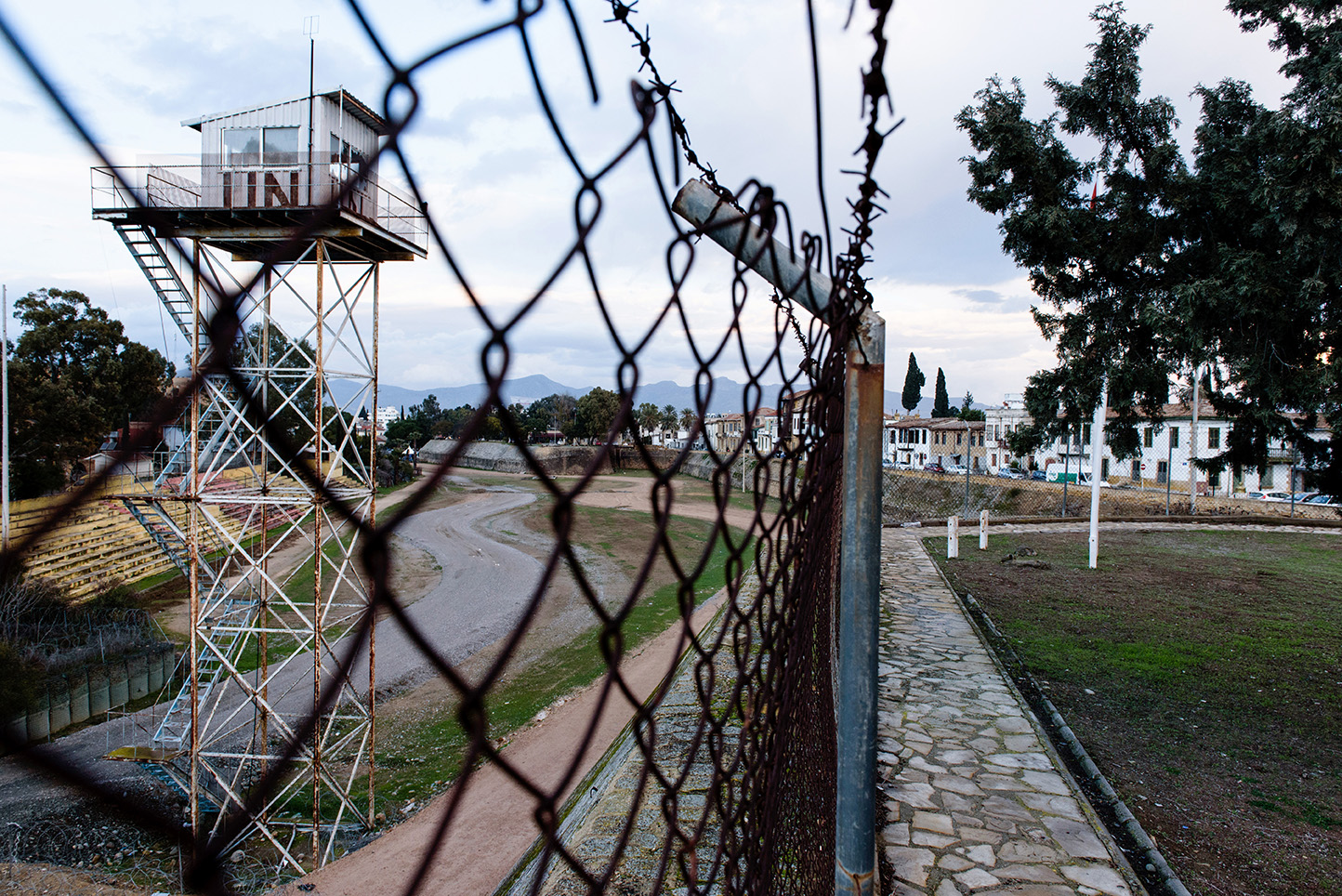Armenia |
Armenia readies itself as emerging global AI hub
A combination of Armenia’s Soviet past, American technological innovation, and successful entrepreneurship among its diaspora offers the landlocked country a remarkable opportunity to not only become the major IT hub in the South Caucasus but also to become an emerging centre for innovation

Armenia-readies-itself-as-emerging-global-AI-hub
The Nvidia's vice president Rev Lebaridian with Nikol Pashinyan (Photo by Armenia government)
Firebird, a San Francisco and Yerevan-based startup, and the Armenian government have announced the development of a $500 million Artificial Intelligence (AI) factory in the landlocked South Caucasus country. A next-generation data centre, purpose-built to produce AI models and solutions at scale, will be completed next year. Firebird and Team Centre, another local venture, will finance the development while U.S. global tech giant Nvidia will be the technology partner. Nvidia is best known for its Graphic Processing Units (GPUs). Initially intended for video gaming, Nvidia GPUs are now sought after for scientific and artificial intelligence purposes. The company has a market capitalisation of $4 trillion.
Nvidia plans to establish 20 other AI factories across Europe in the coming years, claiming that they would boost AI computing capacity in the European Union tenfold in the next 10 years. AI factories are considered the bedrock for its Europe’s AI future. Nvidia will first establish "factories" in Germany, Sweden, Italy, Spain, and Finland, as well as outside the economic bloc in the UK, to “fuel the next industrial transformation".
Nvidia opened an office and research centre in Yerevan in 2022. Coincidentally, one of Nvidia’s Vice-Presidents, Rev Lebaredian, is an ethnic Armenian and was instrumental in connecting the company with Armenian Prime Minister Nikol Pashinyan after he rose to power in 2018. He is also the nephew of Gerard Libaridian, former foreign policy advisor to Armenia’s first president, Levon Ter-Petrosyan, in the 1990s.
The announcement of the AI Factory partnership came at Nvidia’s GPU Technology Conference in Paris in June this year.In this initial stage, Armenia will receive thousands of the Blackwell GPUs rather than the higher end H20.
Nvidia is the biggest name in AI industry and is the latest to show interest in Armenia. The U.S-Armenia Strategic Partnership Charter, signed at the beginning of the year with the previous Biden administration, includes cooperation on AI and semiconductors.
On 11 August, Nikol Pashinyan’s press secretary told the media that two of three memorandums of mutual cooperation signed by Armenia and the U.S. at the recent Trump-facilitated White House summit on 8 August also concerned artificial intelligence, semiconductors, and energy security. This could relate to replacing Armenia’s Soviet-era Metsamor nuclear reactor by 2036, possibly with American Small Modular Reactors (SMRs), and to power the country’s AI future.
Power consumption is a major consideration for an AI data centre or factory such as Nvidia’s that will be scalable to 100 MW and potentially expandable in the future.
Currently, the Armenian government is attempting to nationalise the electricity network while its owner, Russian-Armenian businessman Samuel Karapetyan, is in pre-trial detention on attempted coup and corruption charges. The country, anyway, had a legacy of success even in the Soviet-era when it was often referred to as the “Silicon Valley of the USSR.” Post-independence, there were attempts to resurrect and develop this technological prowess even before Pashinyan.
If in 2008 the tech sector had a turnover of $96 million, it had reached $765 million in 2017 with a number of major U.S. tech companies such as Synopsis opening up shop. Armenia has also scored success in educating a new generation to work in this area too. The Tumo Centre for Creative Technologies, a diaspora-founded educational project for youth, was established in 2011 and has already expanded globally. Lebaridian, incidentally, is also on Tumo’s Advisory Board. Though Nvidia’s AI Factory will attract foreign specialists to the country, such initiatives will also prepare the younger generation for future employment opportunities. It is one of a few examples of how diaspora assistance to Armenia has been especially successful.
The Afeyan Foundation for Armenia is a founding investor in Firebird, and American-Canadian Noubar Afeyan will act as a strategic advisor and founding partner. Afeyan is better known to many as the co-founder of Moderna, responsible for producing one of the main vaccines during the COVID-19 pandemic.
“This is about building a launchpad for innovation – from Armenia to the world,” said Egyptian-American Razmig Hovaghimian, co-founder and CEO of Firebird. “We will invest in novel models, in robotics and the sciences, in partnership with leading universities from around the world, and build the capacity to incubate the next generation of innovators in Armenia.”
For Armenia, Nvidia’s presence represents more than just foreign investment. It signals a step toward embedding itself into a global innovation network at a time when AI is reshaping entire industries worldwide. If cultivated carefully, the partnership could encourage the further arrival of other leading tech companies, further accelerating Armenia’s growth as a digital economy.
“We are excited about the potential for U.S. technology exports and AI leadership to drive more innovation in Armenia’s dynamic tech sector, benefitting the United States and Armenia,” said U.S. Ambassador to Armenia Kristina Kvien. “Companies like NVIDIA continue to offer world-leading computing and AI solutions, and we are proud that they are the partners of choice for Armenian counterparts.”









